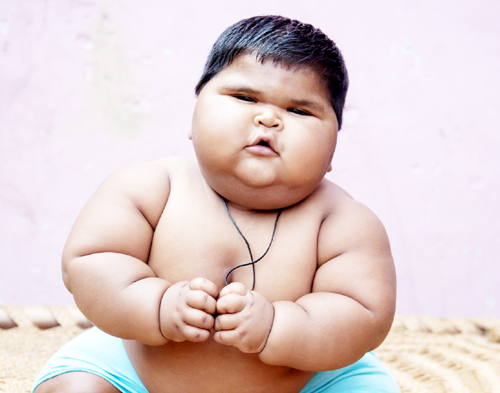
Dr Geetu Verma
Obesity is a medical condition in which excess body fat has accumulated to the extent that it may have a negative effect on health, leading to reduced life expectancy and/or increased health problems. In Western countries, people are considered obese when their body mass index (BMI), a measurement obtained by dividing a person’s weight by the square of the person’s height, exceeds 30 kg/m2, with the range 25-30 kg/m2 defined as overweight.
More children are becoming overweight and obese. Causes of obesity in children include unhealthy food choices, lack of physical activity and family eating habits.
This rise in the number of overweight children is disturbing, because it causes health problems and can lead to social problems. Overweight children are more likely to be teased by their peers or to develop low self-esteem or body image problems. Once children are overweight, it requires a lot of effort and commitment for them to return to a healthy weight.
Overweight and obesity in children are among the most important risks to children’s long and short-term health. Overweight children are very likely to become overweight adults.
Risk Factor For Childhood Obesity
Your body stores unused energy (kilojoules) as body fat. To maintain a healthy weight, you need to use (or ‘burn’) the energy from the foods you eat. If you eat more than you use, your body will store the extra energy as fat.
Factors
*Food choices – these include choosing high fat and sugary foods instead of healthier options.
*Lack of physical activity – Indian children are less active than they were in the past.
*Spending a lot of time on sedentary pursuits – Indian children watch, on average, around 2½ hours of television a day, as well as spending time using computers and other electronic games. It seems that these pastimes are replacing active ones.
*Overweight parents – a family’s eating patterns can have a major influence on whether a child maintains a healthy weight. Some overweight parents may be less concerned about their children also being overweight than parents who have a healthy weight.
*Genetics – some rare gene disorders cause severe childhood obesity. In many other people, particular genes acting together probably make some children more susceptible to obesity. If there is a family tendency to become overweight, parents need to be even more aware of making healthy food choices for the whole family.
Reversing obesity and its health risks requires changing the habits of a lifetime. Eating less over the long term means learning to think about your eating habits and patterns.
What makes you overeat? Coffee break at work? Going out with friends? Watching TV? Late-afternoon energy lag? Late-night sweet tooth? Are you the one who finishes the last serving of dinner just so there won’t be any leftovers? Do you eat high-calorie fast foods or snacks because you don’t have time or energy to cook? Having some insight into your overeating habits helps you to avoid your problem situations and reach your weight goal.
Likewise, increasing your activity level is largely a matter of changing your attitude. You don’t have to be a marathon runner. Look for ways to increase your activity level doing things you enjoy.
How to lose weight?
Weight loss can only be achieved by maintaining a proper balance between chalories consumed and regular exercise and eating something after an interval of every 2 hours. Most of the dietician believe that consumption of any type of liquid like alovera juice,gooseberry(amla) juice etc can not help in weight loss,no doubt they are very good for our health.As said earlier weight loss could only be achieved by maintaing a proper balance between amount of calories consumed.
Can skipping a meal help in weight loss?
Skipping a meal can never help in weight loss. Reasons Not to Skip Meals
* Skipping calories gives you an uneven distribution of calories throughout the day.
* When you skip meals you are not giving your body the energy it needs to properly function.
* It is easy to create late-night cravings that foster poor eating habits by skipping meals.
* People tend to overeat when they are extremely hungry. Skipping meals allows you to reach that hunger level where you consume just about anything and forget when to stop.
* Skipping meals is known to cause low blood sugar.
* Skipping meals delays insulin response, which can lead to diabetes.
* Feeling deprived from skipping meals can lead to binge eating and weight gain.

